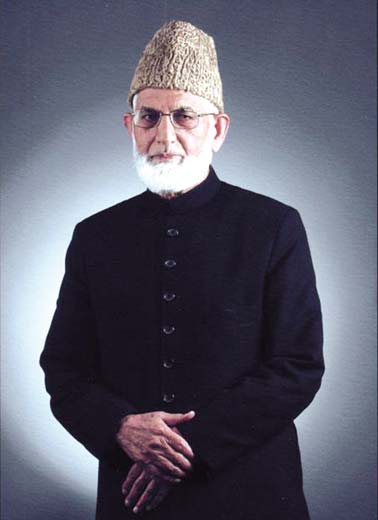By Basharat Ali

At this point of time Kashmir is faced with one important question: who will succeed Geelani? Many names have been suggested. However, Geelani declared in a recent press conference that his successor will be named only after his death.
What do we mean when we talk about Geelani’s successor? There are two possible meanings to it. Either we are talking about Chairman of All Parties Hurriyat Conference (APHC), a position in an organisation, or we mean a leader with a mass following irrespective of his or her organisational affiliations.
As far as the position of Chairman of APHC is concerned then the decision, as per the constitution of the pro-freedom group, will be taken by Majlis-e-Shura which comprises of members from all constituent parties. In 2010, a resolution was moved by the Shura to elect Geelani Chairman for the lifetime. Which means, after his death, the Shura will meet again to decide who will succeed Geelani as the Chairman of the group. Geelani, as an individual office bearer of the organisation, cannot decide that on his own.

The Chairman of Hurriyat is not an unimportant figure in the scheme of things Kashmir is caught in. The process by which he is elected is in total contrast with the systems of open democracies like India which, at least in theory and in an electoral process, consider all individuals equal. The concept of Shura is derived from Islamic theology which is at the heart of Hurriyat constitution. The fundamental principle of Shura is to consult and seek opinions from people with qualities like knowledge, justice, wisdom, courage, piety, among other things, to establish the domination of Allah at all the times. Members of the Shura can keep changing but the domination will be that of Allah’s rule at all the time. In an open democratic system, however, political parties or certain powerful elites can circumvent the process to the best of their interests.
However, many of us confuse this with an altogether different but more important issue. Many believe that in naming his successor, Geelani will name a new leader who will take his place as an undisputed statesman like himself. Geelani has a mass following which no other individual in Kashmir can claim at this point in time.
Leadership is something which cannot be forced down someone’s throat. It cannot be passed on to someone else. Leaders are not named, they are born. They emerge after years of serving the cause with dedication and connect with the masses and as a result of certain situations, based on their charisma and the qualities they display — which include commitment, ability to inspire and mobilise masses, articulation of aspirations in proper manner and language.
Masrat Alam’s case is a fitting example here. He emerged as an undisputed mass leader in 2008. Most of us had not heard about him till then, but the way he inspired and mobilised people in no time: Masrat wali Azaadi followed the slogans like Geelani wali Azaadi.
Geelani is committing no mistake — as many people have argued — by not naming his successor. He is keeping the space open for any individual in the ranks of Hurriyat and also outside it to step up and fit in his shoes.
Thus, as a process to elect a person to succeed Geelani as a Chairman, Shura has all the power to decide. But will that person be a statesman, leader of the masses like Geelani, is something we all have to wait for.















